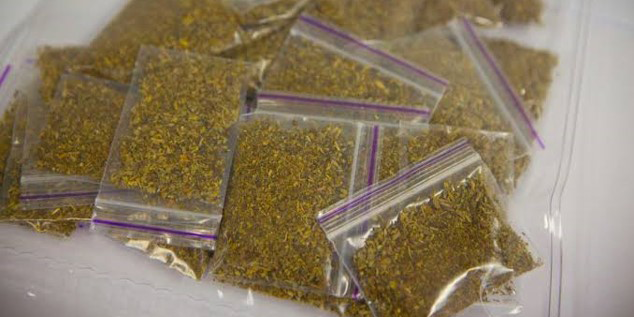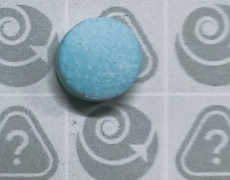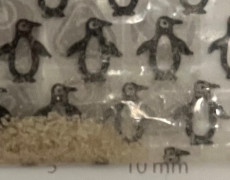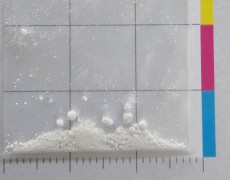Serious synthetic cannabinoids harm in Christchurch linked to 4F-MDMB-BINACA and MDMB-4en-PINACA
-
Notification
-
Synthetic Cannabinoids
-
- Christchurch
A dangerous batch of synthetic cannabinoids is currently present in Christchurch in February 2021.

How to identify the drug
- Usually described as a white, off-white or yellow brown powder.
- Usually sprayed onto dehydrated plant material and smoked.
- It can also be vaped or consumed orally.
- Appearance and effects can vary among synthetic cannabinoids.
26 February 2021
This notification is to advise of a dangerous batch of synthetic cannabinoids currently present in Christchurch, which has been possibly linked to at least one death. The synthetic cannabinoids involved are 4F-MDMB-BINACA and MDMB-4en-PINACA.
While no drug use is the safest drug use, High Alert recommends extreme caution consuming synthetic cannabinoids, especially in Christchurch at this time. High Alert is also currently investigating further synthetic cannabinoid related incidents in the Christchurch area. We will update on this when more information becomes available.
MDMB-4en-PINACA is an analogue of 5F-ADB which, along with AMB-FUBINACA, was responsible for the majority of synthetic cannabinoid related deaths in 2017/2018. High Alert has recently issued two notifications for MDMB-4en-PINACA, concerning its detection at the border and a spate of synthetic cannabinoid related harm in Taranaki. Since then it has been associated with a number of hospitalisations across New Zealand.
MDMB-4en-PINACA has been responsible for a number of deaths overseas, and it is believed to be the one of the most dangerous synthetic cannabinoids currently in circulation.
If you have heard of any reports of this drug, please let us know! The alert ID is N20/0016. All submissions are anonymous.
Stay safer by staying informed. Sign up to receive alerts and notifications about any dangerous drugs in NZ. Check out the alerts page to see what we've already found.
How to recognise symptoms of the drug
Synthetic cannabinoids can have harmful and unpredictable effects. Immediate effects may include:
- Fast or irregular heartbeat
- High blood pressure
- Nausea, or vomiting
- Seizures
- Tremors
- Sedation, drowsiness
- Slowed reaction times
- Confusion, loss of touch with reality
- Paranoia, anxiety and panic attacks
- Loss of consciousness
How to reduce harm from the drug
While no drug use is the safest drug use, High Alert recommends extreme caution consuming synthetic cannabinoids, especially in Christchurch at this time. We are currently investigating further reports of serious harm caused by synthetic cannabinoids. We will update on this when more information becomes available.
Synthetic cannabinoids in circulation are not safe. MDMB-4en-PINACA has the potential for serious harm, as it can lead to rapid overdoses at low concentrations. It is currently listed on the European Monitoring Centre for Drugs and Drug Addiction’s list of novel psychoactive substances under intensive monitoring.
There’s a risk that dosing can be different, even within the same batch, as it’s easy for manufacturers to apply a dangerous dose when preparing leaf mixture, further increasing the likelihood of overdoses, and possibly death.
There is also a high risk that manufacturers and distributors do not know which type of synthetic cannabinoid they are applying to plant material. As such the effects may be unpredictable. Each packet sold may also include more than one synthetic cannabinoid or other drug types.
The effects experienced can also be exacerbated by other drugs or alcohol taken, a person’s mental health, or the presence of underlying medical conditions.
With all synthetic cannabinoids it is recommended to use very small amounts and wait for the full effect before having more. Inexperienced users should wait one hour between use.
People can often be very ‘out of it’ after using synthetic cannabinoids. They may collapse or “drop”, foam at the mouth or experience temporary paralysis. Place them in a stable side position if possible and continuously monitor breathing. Call an ambulance immediately.
If you think someone is suffering a medical emergency, call 111 immediately and ask for an ambulance. Always tell emergency responders what someone has taken – you won’t get in trouble, and it could save a life.
Always call an ambulance if someone:
- is unconscious;
- stops breathing;
- has a seizure;
- is extremely agitated for longer than 15 minutes;
- has chest pain or breathing difficulties for longer than 5 minutes.
For further harm reduction information, please see the Drug Foundation’s synthetic cannabinoids page.
If you have heard of any reports of this drug, please let us know through the Report unusual effects page, the alert ID is N20/0016. All submissions are anonymous.
Are you concerned about your own drinking or drug taking? Reach out to the Alcohol Drug Helpline on 0800 787 797, or text 8681. You'll be able to speak with a trained counsellor who can provide you with helpful information, insight and support. They’re available 24/7, all calls are free and confidential.
You can also chat to the Alcohol Drug Helpline team online through the website, or:
- Call the Māori Line on 0800 787 798 for advice and referral to kaupapa Māori services.
- Call the Pasifika Line on 0800 787 799 for advice and referral to services developed for Pacific people.
- Call the Youth Line on 0800 787 984 for advice and referral to services for young people.
Latest Alerts & Notifications

Highly potent synthetic opioid detected in fake diazepam tablet

Alpha-PVP like substance misrepresented as MDMA in Christchurch

Heroin sold as ketamine in Auckland region

Highly potent synthetic opioid misrepresented as butonitazene

